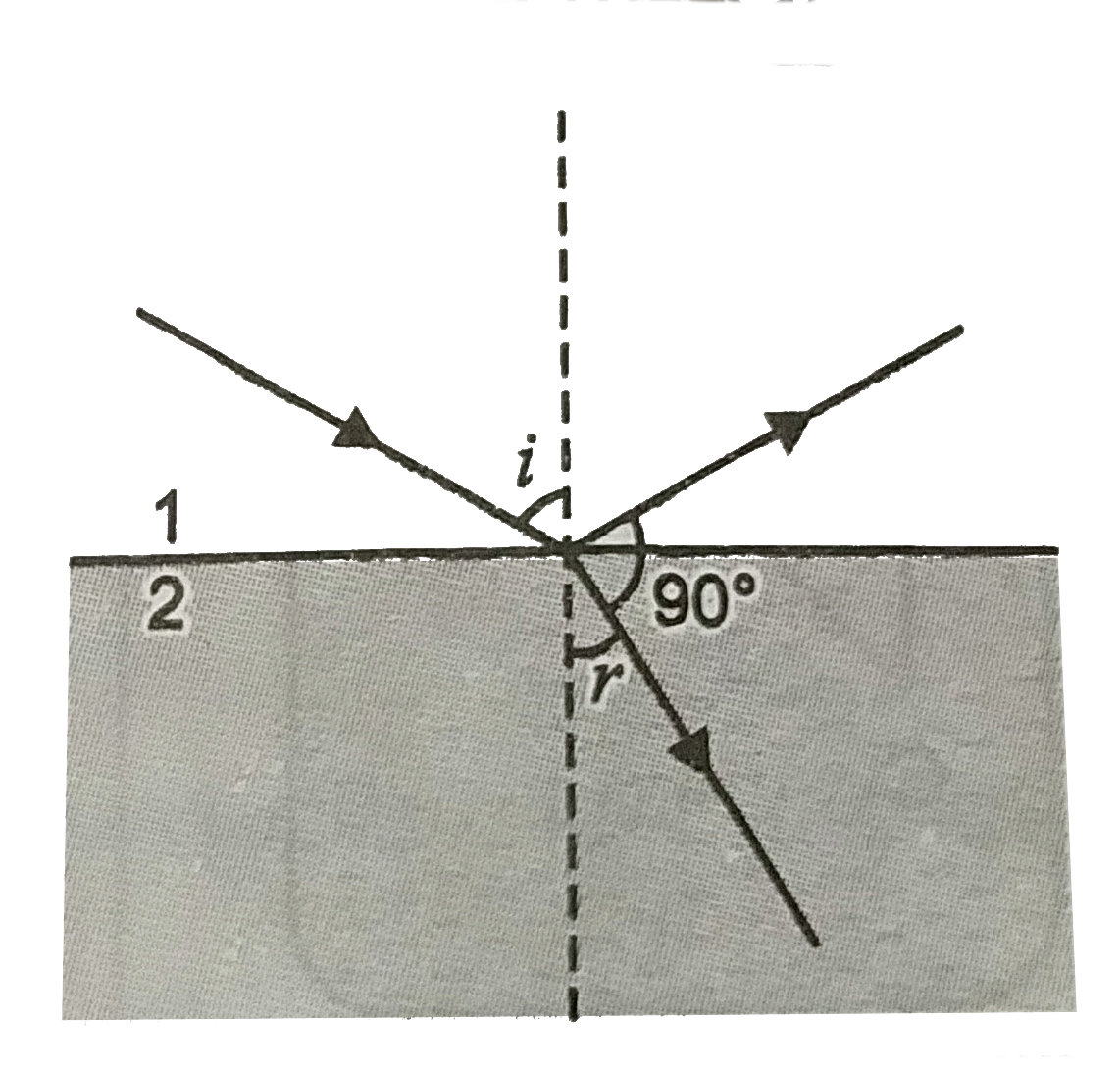Assertion :- When monochromatic light is incident on a surface separating two medium, the reflected and refracted light has same frequency as incident light.
Reason :- Reflection and refraction arise through interaction of incident light with atoms of matter and atoms act as oscillator which takes up frequency of incident light and undergoes forced oscillation and scatters light of same frequency.
If both Assertion & Reason are True & the Reason is a correct explanation of the Assertion.
If both Assertion & Reason are True but Reason is not a correct explanation of the Assertion.
If Assertion is True but the Reason is False.
If both Assertion & Reason are False.
The correct Answer is:A
Similar Questions
When monochromatic light is incident on a surface separating two media, the reflected and refracted light both have the same frequecy as the incident frequecy. Explain why ?
View SolutionExplain the following giving reasons:
(a) When monochromatic light is incident on a surface separating two media, the reflected and refracted light both have the same frequency as the incident frequency. Explain why.
(b) When light travels from a rarer to a denser medium, the speed decreases. does the reduction in speed imply a reduction in the energy carried bythe light wave ?
(c) In the wave picture of light, intensity of light is determined by the square of the amplitude of the wave, what determines the intensity of light in the photon pisture of light ?
View Solution
Knowledge Check
Assertion : When monochromatic light is incident on a surface separting two media, the reflected and refracted light both have the same frequency as the incident frequency.
Reason: The frequency of monochromatic light depends on media.AIf both assertion and reason are true and\ reason is a correct explanation of the assertionBIf both assertion and reason are true but the reason is not a correct explanation of assertion.CIf assertion is true but reason is false.DIf assertion is false but reason is trueLight incident on a surface separating two media is partly reflected and party refracted as shown in Fig. Then :
 .Asini=μ2(μ21+μ22)1/2Btani=μ1μ2Csini=μ1μ2Dsini=μ2μ1.
.Asini=μ2(μ21+μ22)1/2Btani=μ1μ2Csini=μ1μ2Dsini=μ2μ1.A: When monochromatic light is incident on a surface separating two media, the reflected and refracted light both have the same frequency as the incident frequency.
R: At any interface between the two media , the electric (and magnetic) fields must satisfy certain boundary conditions for all times and frequency determines the time dependence of fields.AIF both Assertion & Reason are true and the reason is the correct explanation of the assertion, then mark (1).BIf both Assertion & Reason are true but the reason is not the correct explanation of the assertion, then mark(2)CIF Assertion is true statement but Reason is false then mark(3)DIf both Assertion and Reason are false statements, then mark (4)
(a) When monochromatic light is incident on a surface separating two media, the reflected and refracted light both have the same frequency as the incident frequency. Explain why ?
(b) When light travels from a rarer to a denser medium, the speed decreases. Does the reduction in speed imply a reduction in the energy carried by the light wave?
c) In the wave picture of light, intensity of light is determined by the square of the amplitude of the wave. What determines the intensity of light in the photon picture of light.
View Solution(a) When monochromatic light is incident on a surface separating two media, the reflected and refracted ligth both have the same frequency as the incident frequency. Explain why ?
(b) When light travels from a rarer to a denser medium, it loses speed. Does the reduction in speed imply a reduction in energy carried by the light wave ?
( c) In the wave picture of light, intensity of ligth is determined by the square of amplitude of wave. What determines the intensity of light in teh photon picture of light ? (NCERT Solved Example)
View SolutionExplain the following giving reasons :
(i) When monochromatic light is incident on a surface separating two media, the reflected and refracted light both have the same frequency as the incident frequency.
(ii) When ligjt travels from a rarer to a denser medium, the speed decreases. Does this decrease in speed imply a reduction in the energy carried by the wave ?
(iii) In the wave picture of light, intensity of light is determined by the square of the amplitude of the wave. What determines the intensity in the photon picture of light ?
View SolutionUnpolarized light is incident on a plane glass surface. The angle of incidence so that reflected and refracted rays and perpendicular to each other, then
View SolutionUnpolarized light is incident on a plane glass surface. The angle of incidence so that reflected and refracted rays and perpendicular to each other, then
View Solution
